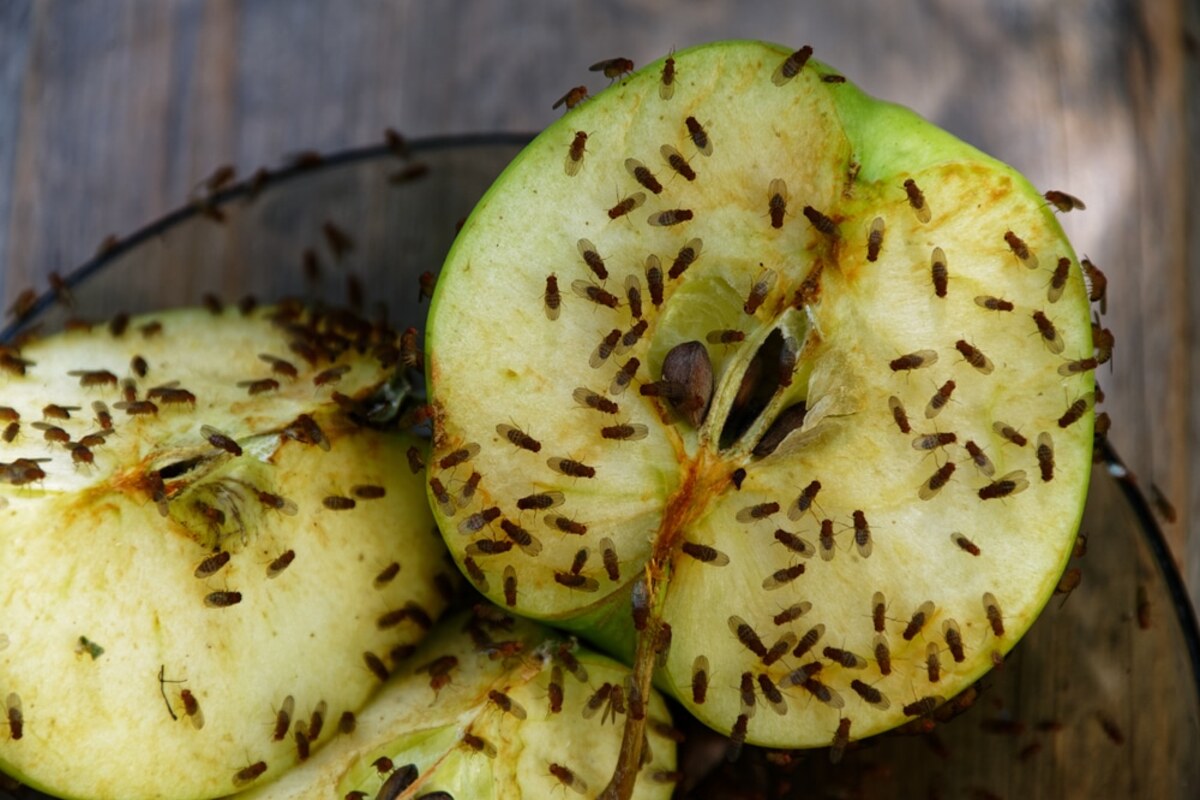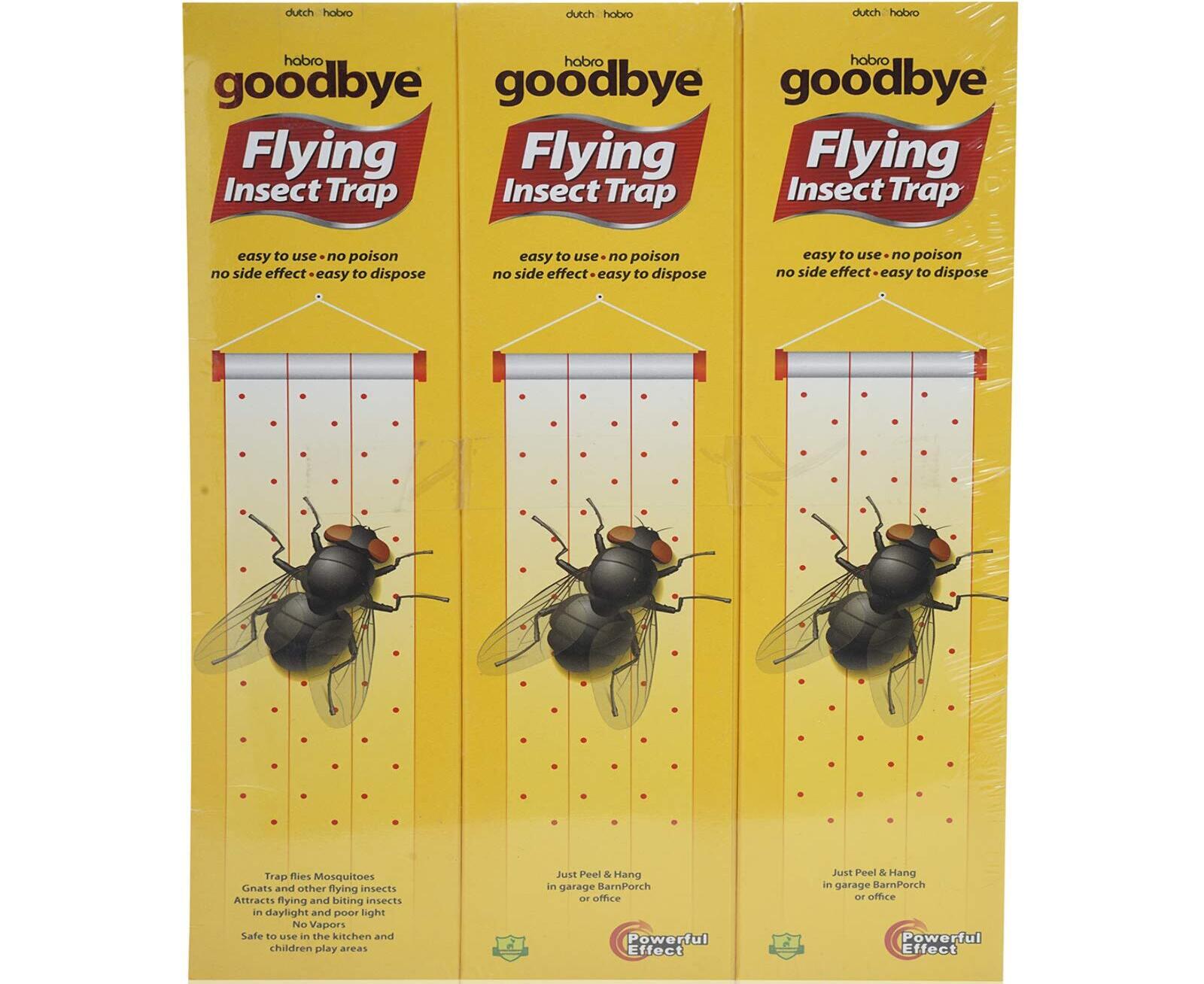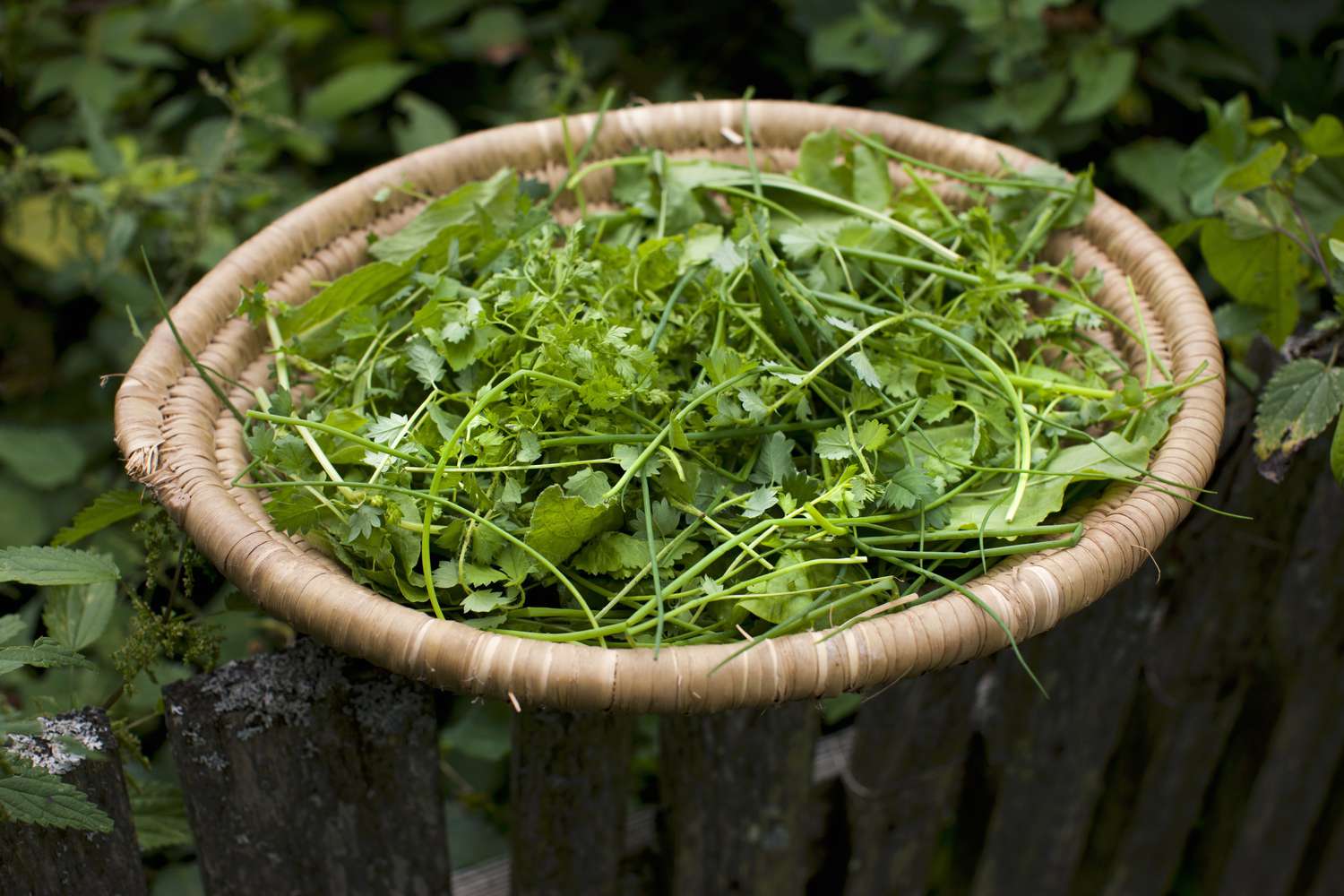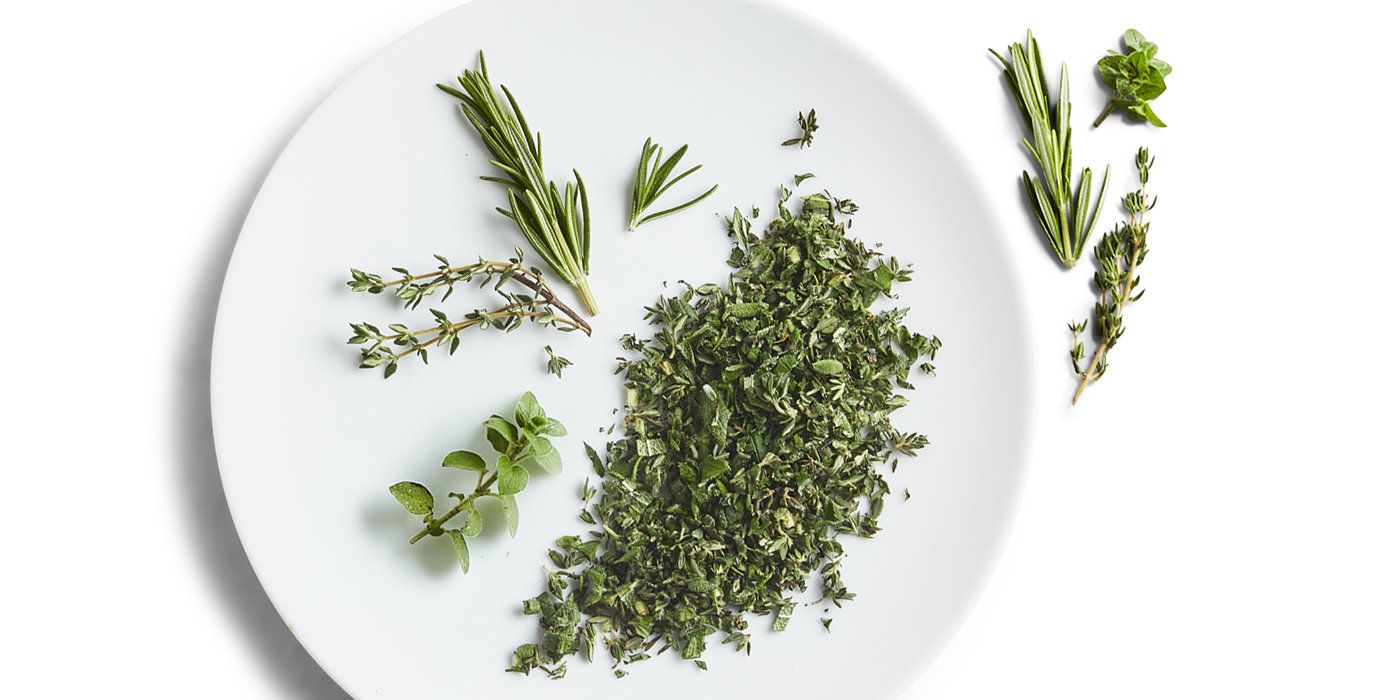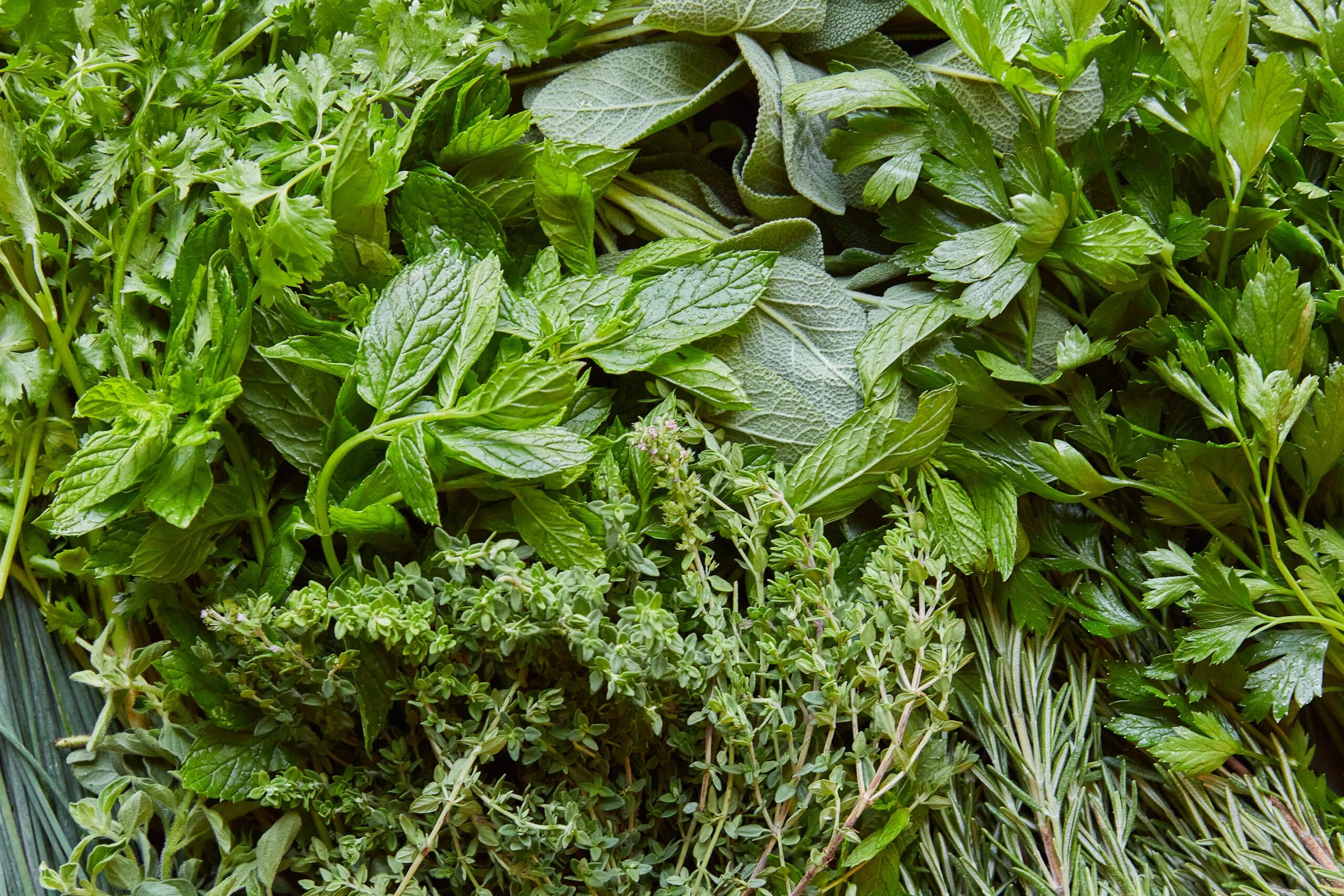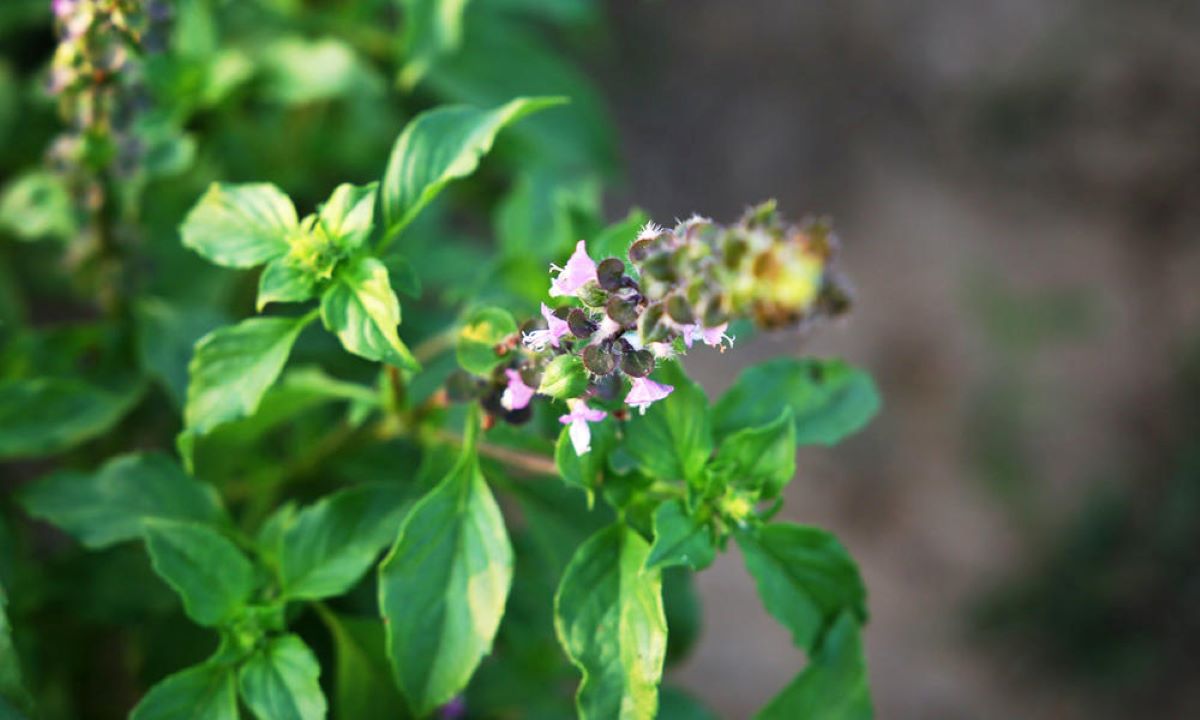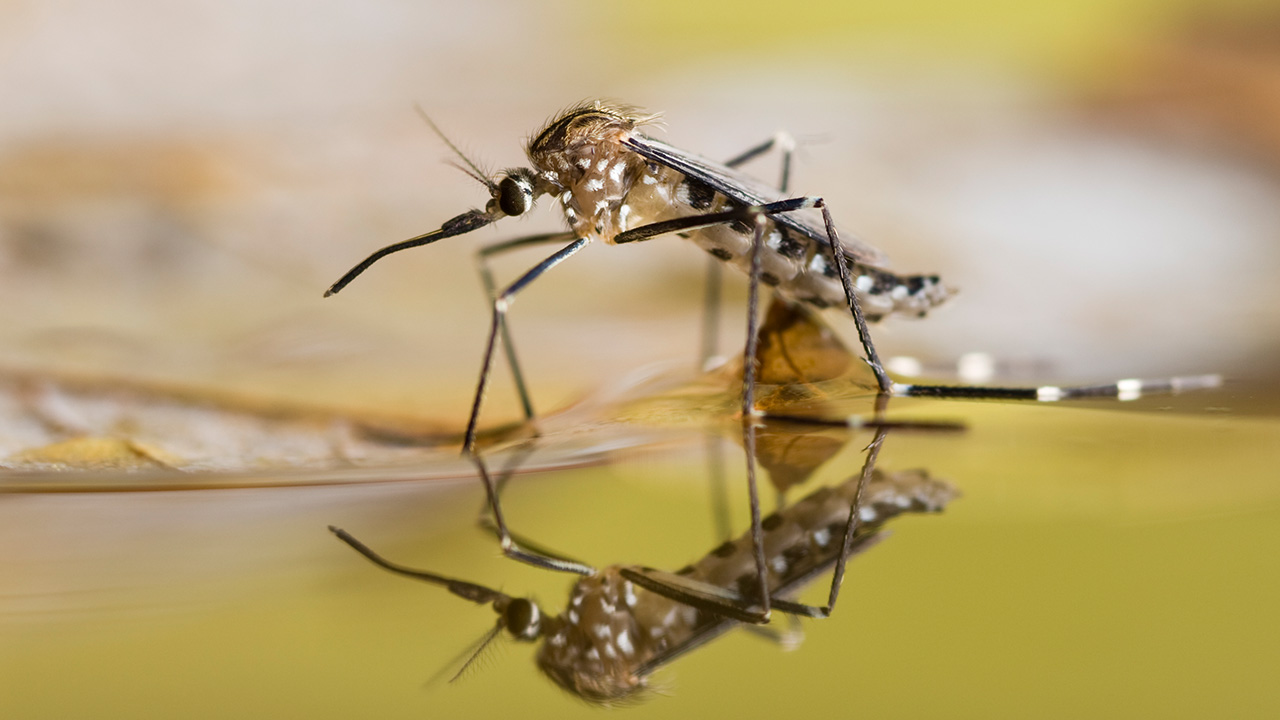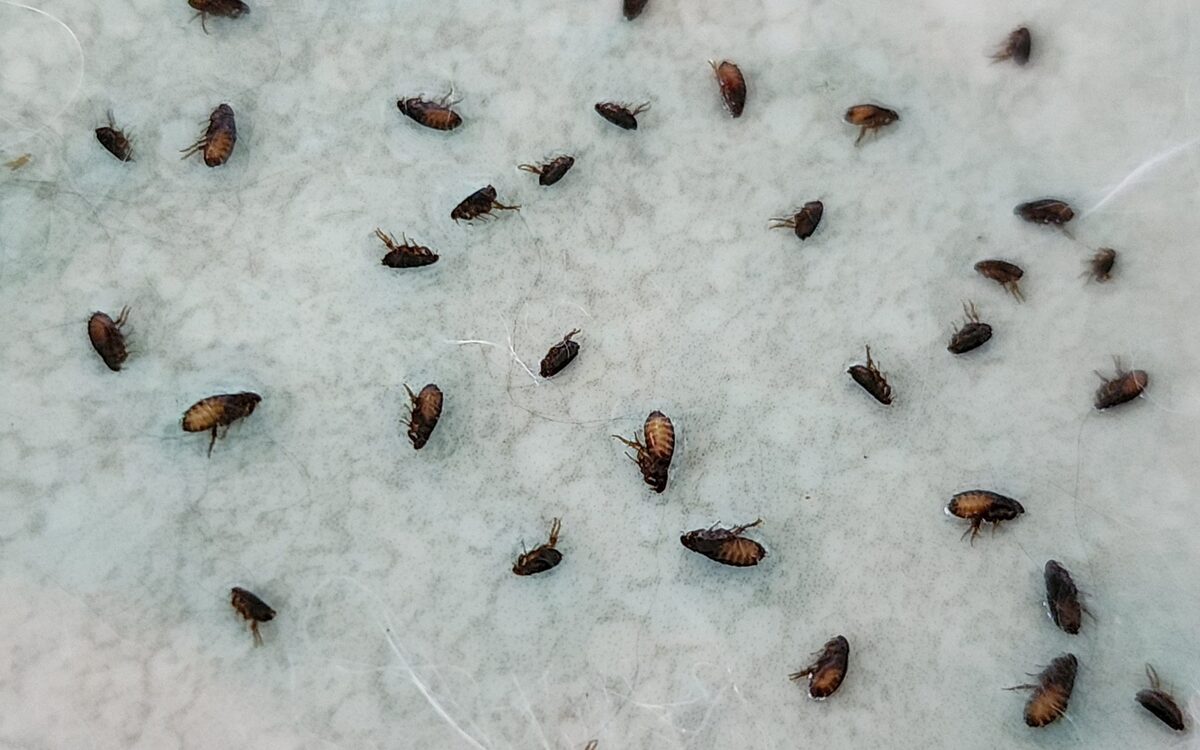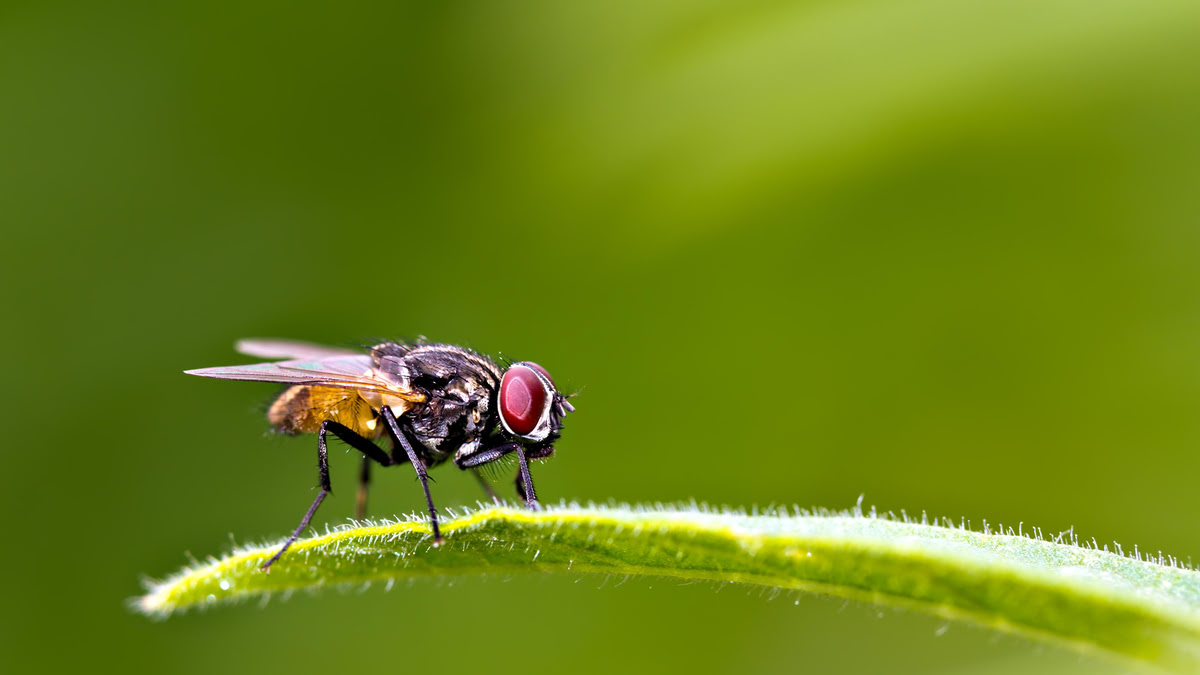Home>Gardening News and Trends>Gardening Trends>What Herbs Repel Flies
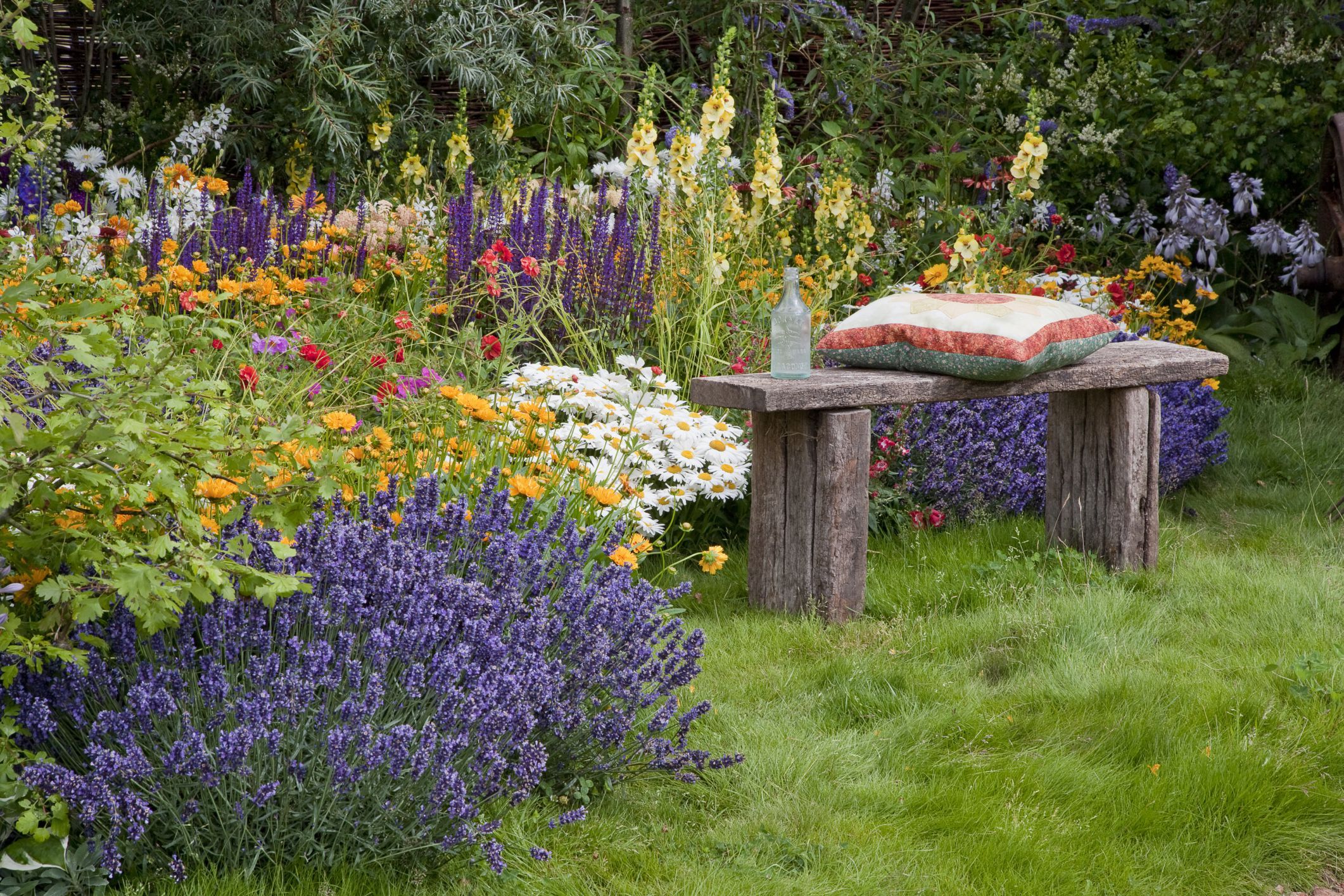

Gardening Trends
What Herbs Repel Flies
Modified: January 22, 2024
Discover the latest gardening trend and learn which herbs repel flies naturally. Create a fly-free outdoor space with these effective natural remedies.
(Many of the links in this article redirect to a specific reviewed product. Your purchase of these products through affiliate links helps to generate commission for Chicagolandgardening.com, at no extra cost. Learn more)
Table of Contents
Introduction
Flies buzzing around can be a nuisance, especially when you’re trying to enjoy your time outdoors or maintain a clean and pest-free environment. While there are various methods to keep flies away, using herbs that naturally repel them is a safe and eco-friendly option.
Herbs have been used for centuries not only for their culinary and medicinal purposes but also for their ability to deter pests. These natural fly repellents offer a gentle and chemical-free solution to the persistent problem of flies.
In this article, we will explore the power of herbs in repelling flies and discover some of the most effective ones that you can incorporate into your garden or home. Whether you’re looking to protect your kitchen from pesky fruit flies or keep your patio fly-free, these herbs will come to your rescue.
Before we delve into the specific herbs, it’s important to understand why repelling flies with herbs is a wise choice.
Firstly, herbs are natural and do not contain any harmful chemicals, making them safe to use around children and pets. Unlike conventional fly repellents that may contain toxic ingredients, herbs provide a non-toxic alternative that is gentle on the environment.
Secondly, herbs add a pleasant aroma to your surroundings. Not only will they keep flies away, but they’ll also enhance the sensory experience of your space. Imagine the calming scent of lavender or the invigorating aroma of mint as you sit on your porch.
Lastly, cultivating herbs that repel flies is a simple and affordable solution. Many of these herbs can be easily grown in your garden or even in pots indoors, giving you an accessible and cost-effective way to keep flies at bay.
Now that we understand why repelling flies with herbs is beneficial, let’s explore the different types of flies commonly found and the specific herbs that can effectively repel them.
Why Repel Flies with Herbs
When it comes to keeping flies away, there are numerous options available, including chemical-based repellents and fly traps. However, using herbs as a natural fly deterrent offers several advantages that make it a preferable choice for many people.
Firstly, herbs provide a non-toxic and chemical-free alternative to traditional fly repellents. Conventional insecticides often contain harmful ingredients that can be hazardous to human health and the environment. In contrast, herbs are safe to use around children, pets, and plants. You can enjoy the benefits of fly repellent without worrying about exposing yourself or your loved ones to harmful substances.
Secondly, herbs offer a more sustainable and eco-friendly approach to fly control. Chemical-based repellents can have adverse effects on the environment, contaminating soil, water sources, and harming beneficial insects. By using herbs, you can reduce your carbon footprint and contribute to a healthier ecosystem.
Furthermore, herbs have the added advantage of providing aromatic benefits. Many herbs have pleasing scents that can act as natural air fresheners. By repelling flies with herbs, you not only keep the pests away but also create a fragrant and inviting atmosphere in your home or garden.
In addition to their repellent properties, herbs also have various other uses. They can be used for cooking, teas, medicinal purposes, and even as decorative plants. By incorporating fly-repellent herbs into your garden, you not only address the fly problem but also enhance the overall beauty and functionality of your space.
Lastly, herbs are readily available and easy to grow. Whether you have a sprawling garden or simply a windowsill, you can cultivate herbs to repel flies. This means you have a sustainable and cost-effective option for long-term fly control. With a little care and attention, you can have an abundant supply of fresh herbs while keeping flies at bay.
Overall, repelling flies with herbs is a natural, safe, and environmentally-friendly approach. It offers a sustainable solution that not only addresses the issue of flies but also provides additional benefits such as pleasing scents, culinary uses, and aesthetic appeal. By harnessing the power of herbs, you can create a fly-free and inviting environment while minimizing the negative impact on your health and the planet.
Types of Flies Commonly Found
Before we delve into the specific herbs that repel flies, it’s important to understand the types of flies you may encounter. By familiarizing yourself with these common fly species, you can better tailor your fly repellent strategy to effectively combat the problem.
1. House Flies: House flies (Musca domestica) are the most common type of fly found in homes and outdoor spaces. They are attracted to garbage, decaying organic matter, and food waste. House flies can transmit diseases by contaminating surfaces with their feces and saliva.
2. Fruit Flies: Fruit flies (Drosophila spp.) are small flies that are attracted to ripe and decaying fruits and vegetables. They are commonly found in kitchens, grocery stores, and anywhere food is stored or left out. Fruit flies reproduce quickly, making them difficult to control without proper measures.
3. Stable Flies: Stable flies (Stomoxys calcitrans) are biting flies commonly found around livestock and horses. They have a painful bite and can transmit diseases to animals. Stable flies can also be a nuisance to humans, especially in rural areas or near farms.
4. Cluster Flies: Cluster flies (Pollenia spp.) are larger flies that congregate in large numbers, typically around windows or walls. They are common in rural areas and can be a nuisance in the autumn months as they seek shelter indoors to overwinter.
5. Blow Flies: Blow flies (Calliphoridae family) are attracted to dead animals, feces, and rotting organic matter. They are known for their metallic blue or green color and are often associated with decomposition. Blow flies can also be a sign of a larger pest or wildlife issue.
These are just a few examples of the types of flies you may encounter. Each species has distinct habits, preferences, and breeding patterns, making it important to understand their behavior when selecting herbs to repel them.
Now that we are familiar with the common types of flies, let’s explore the specific herbs that have proven effective in repelling these pesky insects.
Herbs That Repel Flies
When it comes to repelling flies, nature has provided us with a range of herbs that can effectively keep these pests at bay. By incorporating these herbs into your garden, patio, or indoor spaces, you can create a natural barrier against flies and enjoy a fly-free environment. Here are some of the top herbs known for their fly-repellent properties:
- Basil: Known for its delightful aroma and culinary uses, basil also acts as an effective fly repellent. Planting basil in pots or around windows and doors can help deter flies. You can also create a natural fly repellent spray by steeping basil leaves in water and spraying it in fly-prone areas.
- Lavender: Not only does lavender add beauty and a calming fragrance to your surroundings, but it also repels flies. Planting lavender in your garden or placing dried lavender sachets in fly-prone areas can help keep flies away. Lavender oil can also be used to create a homemade fly repellent spray.
- Peppermint: The invigorating scent of peppermint is loved by humans but despised by flies. Planting peppermint in your garden or using peppermint essential oil in a diffuser can deter flies. You can also create a fly repellent spray by mixing peppermint oil with water and spraying it around your home or outdoor area.
- Rosemary: Rosemary is not only a versatile culinary herb but also a natural fly repellent. Planting rosemary near patios or outdoor seating areas can help keep flies away. You can also make a homemade fly repellent by steeping rosemary leaves in boiling water and spraying the cooled mixture in fly-prone areas.
- Tansy: Tansy is a herb known for its strong and distinct aroma that repels flies. Planting tansy in your garden or placing dried tansy leaves in fly-infested areas can help deter flies. However, it’s important to note that tansy is toxic to pets, so use it with caution.
- Lemon Balm: Lemon balm, with its lemony scent, acts as a natural fly repellent. Planting lemon balm in pots or in your garden can help deter flies. You can also rub fresh lemon balm leaves on your skin as a natural fly deterrent.
- Mint: Mint is not only refreshing in beverages but also effective in repelling flies. Planting mint in your garden or using mint essential oil in a diffuser can help keep flies at bay. You can also crush mint leaves and rub them on your skin to repel flies.
- Citronella: Citronella is a well-known natural insect repellent, and it works equally well against flies. Planting citronella grass or using citronella candles or oil in outdoor areas can help repel flies. Citronella oil can also be combined with other oils to create a homemade fly repellent spray.
- Lemongrass: Lemongrass has a fresh and citrusy scent that acts as a natural fly repellent. Planting lemongrass in your garden or using lemongrass essential oil in a diffuser can help keep flies away. Lemongrass oil can also be mixed with water to create a fly repellent spray.
- Marigold: Known for its vibrant blooms, marigold also has fly-repellent properties. Planting marigold flowers in your garden or placing dried marigold petals in fly-infested areas can deter flies. Marigolds are especially effective in repelling mosquitoes and other flying insects.
These are just a few examples of herbs that can effectively repel flies. Incorporating these herbs into your surroundings not only keeps flies away but also adds beauty and aroma to your environment.
Now that you know which herbs are effective in repelling flies, let’s explore how to use them to keep your space fly-free.
Basil
Basil is not just a flavorful herb used in cooking; it also possesses natural fly-repellent properties. With its strong aroma, basil can effectively keep flies at bay and prevent them from infesting your home or garden.
To use basil as a fly repellent, you have a few options. First, you can plant basil in your garden or in pots on your porch or windowsill. Flies are naturally deterred by the smell of basil, and having it nearby can help keep them away. You can also strategically place potted basil near windows and doors to create a barrier against flies entering your home.
If you’re dealing with an existing fly problem, you can make a homemade fly repellent spray using basil. Simply steep a handful of basil leaves in boiling water for about 30 minutes, then strain the liquid and let it cool. Transfer the cooled basil-infused liquid to a spray bottle and spray it in fly-infested areas. The strong scent of basil in the spray will repel flies and discourage them from lingering or breeding.
Another creative way to use basil as a fly repellent is by making a basil sachet. Take dried basil leaves and place them in a small cloth bag or sachet. Hang or place these sachets near windows, doors, or any fly-prone areas. The scent of the dried basil will naturally deter flies and keep them from entering your space.
Basil is a versatile herb that not only adds flavor to your dishes but also acts as a natural fly repellent. By incorporating basil into your garden or using it in homemade sprays or sachets, you can effectively repel flies and enjoy a fly-free environment.
Lavender
Lavender is a popular herb known for its calming fragrance and beautiful purple flowers. However, its usefulness extends beyond its visual and aromatic appeal. Lavender also possesses natural fly-repellent properties, making it a great addition to your arsenal against flies.
One of the simplest ways to use lavender as a fly repellent is to plant it in your garden or in pots around your patio or windows. The strong scent of lavender is highly displeasing to flies, and having lavender nearby can act as a natural deterrent. Additionally, the beautiful blooms of lavender will add a touch of elegance to your outdoor space.
If you’re dealing with flies indoors, you can use dried lavender sachets to keep them away. Place dried lavender flowers in small cloth bags or sachets and position them near windows, doors, or other entry points where flies tend to gather. The aromatic scent of lavender will not only repel flies but also infuse your space with a pleasant fragrance.
Another effective way to utilize lavender as a fly repellent is to create a homemade lavender oil spray. Combine lavender essential oil with water in a spray bottle and shake well to mix. You can then spray this mixture around areas where flies are present, such as windowsills, doorways, and outdoor seating areas. The strong scent of lavender oil will deter flies from entering these spaces.
Lavender’s fly-repellent properties extend to other insects as well, making it a versatile herb to have. Mosquitoes, moths, and other flying pests also find the scent of lavender displeasing. Placing bouquets of fresh or dried lavender around your home can help keep these insects away, allowing you to enjoy peaceful summer evenings without the annoyance of buzzing pests.
In addition to repelling flies, lavender has a host of other benefits, including its ability to promote relaxation and improve sleep quality. So not only will lavender keep flies at bay, but it can also contribute to a tranquil and stress-free environment.
By incorporating lavender into your garden, using dried lavender sachets, or creating lavender oil sprays, you can effectively repel flies and enjoy the calming and fragrant benefits of this versatile herb.
Peppermint
Peppermint is not only a refreshing and invigorating herb, but it also serves as a natural fly repellent. Its strong and distinct scent repels flies, making it an effective herb to have on hand to keep these pests away.
One simple way to use peppermint to deter flies is to plant it in your garden or in pots around your home or outdoor seating areas. The aromatic oils released by the peppermint plant will naturally repel flies, preventing them from entering and infesting your space.
If you’re dealing with flies indoors, another approach is to create a peppermint oil spray. Fill a spray bottle with water and add a few drops of peppermint essential oil. Shake well to mix the solution, then spray it around areas where flies are present, such as windows, doorways, and kitchen countertops. The strong scent of peppermint will discourage the presence of flies in these areas and keep them at bay.
For an additional layer of fly repellent, you can also crush fresh peppermint leaves and rub them on your skin. This can help ward off flies when you’re spending time outdoors. Not only will you smell refreshing, but you’ll also be deterring flies from landing on you.
Another effective way to utilize peppermint is by using it in sachets. Place dried peppermint leaves in small cloth bags or sachets and position them near windows, doors, or any areas where flies tend to gather. The scent of peppermint will act as a natural deterrent, keeping flies away from your home.
Aside from its fly-repellent properties, peppermint has a wide range of other benefits. It is known to have a cooling effect on the skin, soothe headaches, and aid in digestion. So, while peppermint helps repel flies, it can also provide additional health and wellness benefits for you.
Overall, peppermint is a versatile herb that not only adds a refreshing aroma but also serves as a natural fly repellent. By planting peppermint, using peppermint oil sprays, or utilizing peppermint sachets, you can effectively keep flies away and create a more pleasant and pest-free environment.
Rosemary
Rosemary is a versatile herb known for its culinary uses and its ability to add fragrance and beauty to any garden. However, its benefits extend beyond its culinary and aesthetic appeal. Rosemary also possesses natural fly-repellent properties, making it an excellent herb to incorporate into your fly control strategy.
One of the simplest ways to use rosemary as a fly repellent is by planting it in your garden or in pots near windows and doors. The strong aroma of rosemary naturally deters flies and other flying insects. By strategically placing rosemary plants around your outdoor spaces, you can create a barrier that discourages flies from entering your home or patio.
If you’re dealing with flies indoors, you can create a rosemary-infused spray to repel them. Steep a handful of rosemary leaves in boiling water for about 30 minutes, strain the liquid, and let it cool. Transfer the cooled rosemary-infused liquid to a spray bottle and use it to spray fly-infested areas, such as windowsills or outdoor seating areas. The scent of rosemary will discourage flies from lingering and breeding in those areas.
Rosemary can also be used in combination with other herbs or plants to enhance its fly-repelling properties. For example, you can create a hanging bouquet of dried rosemary, lavender, and mint to keep flies away. Simply bundle the dried herbs together, tie them with a string, and hang them near windows or outdoor seating areas. The combined scents of these herbs will create a powerful fly deterrent.
Additionally, you can make a homemade fly repellent oil by infusing rosemary leaves in a carrier oil such as olive oil or almond oil. Place several sprigs of rosemary in a jar and cover them with the carrier oil. Let it sit for a few weeks to allow the oil to absorb the rosemary’s aromatic properties. Strain the mixture, and you’ll have a natural fly repellent oil that can be applied to the skin or used around the home to repel flies.
Not only does rosemary provide a natural and effective way to repel flies, but it also has various other benefits. It is known for its antimicrobial properties and can help purify the air in your surroundings. Additionally, rosemary is a versatile culinary herb that adds flavor to a wide range of dishes.
By incorporating rosemary into your garden, using rosemary-infused sprays or oils, or creating herbal combinations, you can effectively repel flies and enjoy the many benefits that this versatile herb has to offer.
Tansy
Tansy is a herb known for its potent aroma and its ability to repel flies and other pests. While it may not be as commonly recognized as other herbs, tansy can be a valuable addition to your fly control efforts.
When it comes to repelling flies, one of the simplest ways to use tansy is by planting it in your garden or in pots around your outdoor space. Tansy’s strong scent naturally deters flies, creating a barrier that keeps them away from your home or patio. It’s important to note that tansy can spread aggressively, so it’s best to plant it in controlled areas or in pots to prevent it from taking over your garden.
In areas where flies are particularly problematic, you can make use of dried tansy leaves. Simply gather dried tansy leaves and place them in small cloth bags or sachets. Position these sachets near windows, doors, or any areas where flies tend to gather. The potent aroma of the dried tansy will act as a natural deterrent, keeping flies at bay.
Due to its potent properties, it’s important to exercise caution when using tansy, especially if you have pets. Tansy contains a compound called thujone, which can be toxic to animals if ingested in large quantities. Therefore, it is best to keep tansy sachets or plants out of the reach of pets and to consult with a veterinarian if you have any concerns.
Using tansy as a natural fly repellent is a sustainable and eco-friendly option. By avoiding the use of chemical-based fly repellents, you can create a healthier environment for yourself, your family, and the surrounding ecosystem.
While tansy is primarily known for repelling flies, it is important to note that it also has been used traditionally for other purposes. Tansy has been used in traditional medicine for its potential anti-inflammatory and antimicrobial properties. However, it is always recommended to consult with a healthcare professional before using herbs for medicinal purposes.
Incorporating tansy into your fly control strategy can be an effective way to repel flies naturally. By using tansy plants or dried leaves, you can create a fly-free environment while adding a unique touch to your garden or outdoor space.
Lemon Balm
Lemon balm, also known as Melissa officinalis, is a fragrant herb with a pleasant lemony scent. Not only is it a delightful addition to your garden, but it also possesses natural fly-repellent properties, making it a valuable herb for deterring flies.
One of the simplest ways to use lemon balm as a fly repellent is by planting it in your garden or in pots near windows and doorways. The citrusy aroma of lemon balm naturally repels flies, creating a barrier that discourages their presence. Additionally, lemon balm attracts beneficial pollinators such as bees and butterflies, making it a valuable addition to any garden.
If you’re dealing with flies indoors, you can also use lemon balm sachets to keep them away. Place dried lemon balm leaves in small cloth bags or sachets and position them near windows, doors, or any areas where flies tend to gather. The aromatic scent of lemon balm will act as a natural deterrent, keeping flies at bay while infusing your space with a refreshing lemony fragrance.
Another way to utilize lemon balm is by rubbing fresh lemon balm leaves on your skin. The natural oils released from the leaves act as a natural fly deterrent, preventing flies from landing on you. This can be especially useful when spending time outdoors in fly-prone areas.
If you prefer a spray method, you can create a homemade lemon balm fly repellent spray. Boil a handful of lemon balm leaves in water for about 10 minutes, then remove from heat and let the mixture cool. Strain the liquid and transfer it to a spray bottle. Spray the solution around windows, doors, or outdoor seating areas to deter flies and keep them from entering your space.
In addition to its fly-repellent properties, lemon balm has been used in traditional medicine for its calming and uplifting effects. It is known to have a soothing effect on the nerves, making it a great herb to have around for relaxation purposes.
By incorporating lemon balm into your garden or utilizing it in sachets or sprays, you can effectively repel flies while enjoying the refreshing and uplifting fragrance it offers.
Mint
Mint is a refreshing herb that not only adds a burst of flavor to dishes and beverages but also serves as a natural fly repellent. With its strong scent, mint is highly effective in deterring flies and keeping them away from your home and outdoor spaces.
One of the simplest ways to use mint as a fly repellent is by planting it in your garden or in pots near windows and doors. The aromatic oils released by the mint plant naturally repel flies, creating an invisible barrier that keeps them at bay. Additionally, mint plants add a vibrant and lush aesthetic to your surroundings.
If you’re dealing with flies indoors, you can use dried mint leaves to keep them away. Place dried mint leaves in small cloth bags or sachets and position them near windows, doors, or any areas where flies tend to gather. The scent of mint will act as a natural deterrent, preventing flies from entering your living spaces.
An alternative option is to use mint essential oil to create a homemade fly repellent spray. Fill a spray bottle with water and add a few drops of mint essential oil, then shake well to mix. Spray this solution near windows, doorways, or any areas where flies are present. The strong scent of mint will repel flies and discourage them from lingering in those areas.
In addition to repelling flies, mint has cooling and soothing properties. If you spend time outdoors in areas where flies are prevalent, you can crush fresh mint leaves and rub them on your skin. This not only acts as a natural fly deterrent but also provides a refreshing and cooling sensation on the skin.
Mint is a versatile herb that can be used in various culinary dishes, teas, and even homemade beauty products. By planting mint in your garden or using it in sachets, sprays, or on your skin, you can effectively repel flies while enjoying the invigorating aroma and multitude of uses that mint offers.
Citronella
Citronella is a well-known natural insect repellent, and it is equally effective in repelling flies. With its distinct citrusy scent, citronella acts as a powerful deterrent, keeping flies at bay and preventing them from intruding on your outdoor space or home.
One popular way to utilize citronella is by planting citronella grass or citronella plants in your garden or outdoor areas. The strong aroma of citronella naturally repels flies and other flying insects. Simply place potted citronella plants around your patio or windows, or plant citronella grass in your garden to create a protective barrier against flies.
If you prefer a more portable option, you can use citronella candles or torches in outdoor spaces. Citronella candles and torches release the scent of citronella as they burn, creating a fly-repellent atmosphere. Place these candles or torches strategically on your patio or around outdoor seating areas to deter flies from intruding on your gatherings.
Another way to incorporate citronella into your fly control strategy is by using citronella essential oil. You can create a homemade fly repellent spray by diluting citronella essential oil with water. Mix a few drops of citronella oil with water in a spray bottle, shake well, and spray it around areas where flies are present. The strong scent of citronella will discourage flies from lingering in those areas.
Citronella has been widely studied and known for its effectiveness in repelling numerous flying insects, including flies, mosquitoes, and gnats. It has been used for many years as a natural alternative to chemical-based insect repellents.
While citronella is generally safe for humans, it’s important to note that some individuals may be sensitive to citronella oil. Perform a patch test before using it on your skin and discontinue use if any irritation occurs. It’s also important to keep citronella products out of the reach of children and pets.
By incorporating citronella into your outdoor spaces or using it in the form of candles, torches, or essential oil, you can effectively repel flies and create a more pleasant environment for outdoor activities.
Lemongrass
Lemongrass is a fragrant herb that not only adds a refreshing citrusy aroma to dishes and teas but also serves as a natural fly repellent. With its potent scent, lemongrass can effectively deter flies and keep them away from your home and outdoor spaces.
One of the easiest ways to use lemongrass as a fly repellent is by planting it in your garden or in pots near windows and doorways. The strong aroma of lemongrass naturally repels flies, creating a barrier that discourages their presence and prevents them from entering your home. Additionally, lemongrass can add a touch of vibrancy and beauty to your garden.
If you’re dealing with flies indoors, you can also use dried lemongrass as a natural repellent. Place dried lemongrass leaves in small cloth bags or sachets and position them near windows, doorways, or any areas where flies tend to gather. The aromatic scent of lemongrass will act as a natural deterrent, keeping flies at bay while infusing a refreshing fragrance into your space.
Lemongrass essential oil can be used to create a homemade fly repellent spray. Dilute a few drops of lemongrass essential oil in water and transfer the solution to a spray bottle. Spray it near windows, doorways, or outdoor seating areas where flies are present. The strong scent of lemongrass will repel flies and discourage them from lingering in those areas.
Aside from its fly-repellent properties, lemongrass has been used in traditional medicine for its potential health benefits. It is believed to have anti-inflammatory, antibacterial, and antifungal properties. However, it’s important to note that lemongrass essential oil should be used with caution and diluted properly before applying it to the skin or using it in other applications.
By incorporating lemongrass into your garden, using dried lemongrass sachets, or creating lemongrass spray, you can effectively repel flies while enjoying the refreshing citrusy aroma and potential health benefits of this versatile herb.
Marigold
Marigold, with its vibrant colors and lovely blooms, is not only visually appealing but also serves as a natural fly repellent. Its distinct scent and properties make it an effective herb to include in your fly control strategy.
One of the simplest ways to use marigold as a fly repellent is by planting it in your garden or in pots near windows and doorways. Flies are naturally deterred by the scent of marigolds, creating a protective barrier around your home or outdoor spaces. The bright blooms of marigolds also add beauty and charm to your garden, making it an appealing addition all around.
Incorporating marigolds into your vegetable garden can also deter pests and insects, including flies. The natural compounds in marigold plants emit a scent that repels flies and other unwanted visitors, helping to protect your crops from damage.
If you’re dealing with flies indoors, you can use dried marigold petals to create sachets. Place dried marigold petals in small cloth bags or sachets and position them near windows, doorways, or any areas where flies tend to gather. The scent of the marigold will act as a natural deterrent, keeping flies at bay while infusing a pleasant floral fragrance in your living spaces.
Furthermore, marigolds are believed to have properties that naturally repel mosquitoes and other flying insects. By planting marigolds in your garden or placing potted marigolds near outdoor seating areas, you can help create a more enjoyable and pest-free environment.
Marigolds are easy to grow and maintain, making them an accessible option for fly control. They require full sun and well-drained soil, making them a suitable choice for various garden settings.
While marigolds are generally safe for humans and pets, it’s important to note that some individuals may have allergic reactions to marigold flowers. If you have concerns or are unsure, perform a patch test before handling or using marigold flowers or products containing marigold.
By planting marigolds in your garden, using dried marigold sachets, or incorporating marigold in your outdoor space, you can effectively repel flies while adding vibrant colors and beauty to your environment.
How to Use Herbs to Repel Flies
Now that we have explored the various herbs that can effectively repel flies, let’s discuss how to incorporate them into your fly control strategy. Here are some tips on how to use herbs to repel flies:
- Plant them strategically: Plant the fly-repellent herbs strategically around your home and garden. Place them near windows, doorways, and outdoor seating areas to create a natural barrier against flies.
- Create sachets: Dry the herbs, such as lemongrass, mint, or marigold petals, and place them in small cloth bags or sachets. Position these sachets near windows, doors, or any areas where flies tend to gather. The strong scent of the herbs will act as a natural deterrent.
- Make homemade sprays: Create homemade fly repellent sprays using essential oils or herbal infusions. Dilute a few drops of essential oils, such as citronella or peppermint, in water and transfer the mixture to a spray bottle. Spray these solutions around areas where flies are present, such as windowsills, doorways, or outdoor seating areas.
- Rub herbs on your skin: For a natural personal fly repellent, crush fresh leaves of herbs like mint or basil and rub them on your skin. The natural oils released by the herbs will act as a deterrent, preventing flies from landing on you.
- Combine herbs for enhanced effectiveness: Create herbal combinations by bundling dried leaves of multiple fly-repellent herbs together. Hang or place these combinations near windows, doors, or outdoor seating areas to maximize their fly-repelling properties.
- Consider companion planting: Incorporate fly-repellent herbs into your vegetable garden or among other plants to deter pests and insects, including flies. For example, planting marigolds among your vegetables can help protect them from flies and other unwanted visitors.
- Be mindful of herb placement: Place herbs in locations where their fragrance can disperse effectively. Position them near areas where flies frequent, such as garbage bins, compost piles, or outdoor dining areas. Ensure the herbs are easily accessible for maintenance and harvesting.
- Refresh and maintain: Regularly refresh dried sachets or herbal arrangements by crushing the leaves to release their scent. Prune and trim your herb plants to encourage growth and maintain their fly-repellent properties.
- Experiment and adapt: Different herbs may work more effectively in certain environments or against specific fly species. Feel free to experiment with different herbs and combinations to find what works best for your situation.
By following these tips, you can effectively utilize herbs to repel flies and create a fly-free environment in your home and outdoor spaces.
Tips for Maximizing the Effectiveness of Herbs
Using herbs to repel flies is a natural and eco-friendly approach, but there are some tips to maximize their effectiveness. Here are some tips to consider when using herbs for fly control:
- Grow a variety of herbs: Plant a variety of fly-repellent herbs in your garden to create a diverse and effective barrier against flies. Different herbs have slightly different scents and properties, so a combination can provide comprehensive protection.
- Position herbs strategically: Place herbs near areas where flies tend to gather, such as windows, doors, or outdoor dining spaces. Maximizing the proximity of the herbs to the flies’ entry points will increase their repellent effect and prevent flies from entering your home.
- Maintain good airflow: Ensure optimal airflow around your herbs by providing adequate spacing and avoiding overcrowding. Good airflow will carry the herb’s scent and natural compounds, enhancing their fly-repellent properties.
- Regularly harvest and prune: Regularly harvest leaves or trim your herb plants to promote healthy growth. This helps to release more of their natural oils and scents, making the herbs more effective in repelling flies.
- Frequently refresh dried herbs: If using dried herbs in sachets or arrangements, crush the leaves periodically to release their scent and refresh the fly-repellent properties. This ensures that the herbs remain potent and effective in deterring flies.
- Combine herbs strategically: Experiment with different combinations of herbs to find the most effective repellent action against flies. Some herbs may have complementary scents and properties, creating a stronger deterrent effect when combined.
- Use high-quality essential oils: If using essential oils for homemade sprays, choose high-quality oils from reputable sources. Poor quality or diluted oils may not have the same fly-repellent potency, so select oils that are pure and potent.
- Consider companion planting: Plant fly-repellent herbs alongside susceptible plants to protect them from flies and other pests. Companion planting can enhance the overall effectiveness of your fly control strategy while promoting a balanced ecosystem.
- Be mindful of pets and allergies: Some herbs may be toxic or cause allergic reactions in pets or individuals with sensitivities. Research the properties of each herb and take precautions to ensure the safety of your pets and household members when using herbs for fly control.
- Monitor and adapt: Observe the effectiveness of your chosen herbs and make adjustments as needed. Pay attention to specific areas where flies remain persistent and consider switching or adding different herbs to address those areas effectively.
By following these tips, you can optimize the repellent properties of the herbs and create a more effective fly control strategy. Enjoy the benefits of a fly-free environment while embracing the natural and sustainable approach of using herbs.
Conclusion
Using herbs to repel flies not only offers a natural and eco-friendly solution but also enhances the overall ambiance of your home and outdoor areas. From basil and lavender to peppermint and rosemary, these herbs provide effective and safe alternatives to chemical-based fly repellents. By incorporating these herbs into your garden, creating sachets, or using homemade sprays, you can effectively deter flies and enjoy a fly-free environment.
It’s important to understand the different types of flies commonly found and the specific herbs that target their unique preferences and behaviors. Whether you’re dealing with house flies, fruit flies, or stable flies, there is an herb that can help you combat the specific fly problem you’re facing.
Maximizing the effectiveness of herbs involves strategic positioning, regular maintenance, and thoughtful combinations of herbs. Consider the airflow, proper spacing, and companion planting to create a well-rounded fly-repellent herb garden. Don’t forget to refresh dried herbs, harvest leaves, and experiment with different combinations to find the most effective solution for your situation.
Remember to be mindful of any allergies or potential toxicity to pets when using herbs. Always conduct proper research and take necessary precautions to ensure the safety of your loved ones.
In conclusion, herbs provide a natural, sustainable, and aesthetically pleasing way to repel flies. By harnessing the power of herbs, you can create a fly-free space and embrace an eco-friendly approach to pest control. Enjoy the benefits of these versatile herbs as you delight in the captivating scents, beautiful blooms, and fresh flavors they offer in addition to their fly-repellent properties. Enhance your surroundings and take control of the fly problem with the abundance of herbs nature has provided.
